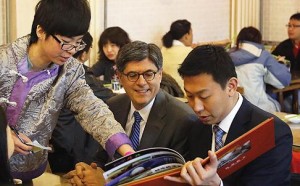Group membership is sometimes voluntary, sometimes not. Sometimes there are such advantages attached to group membership that there are disputes over who can belong. One wouldn’t normally expect such disputes to involve ethnic backgrounds. And not long ago, fighting to claim membership in an American Indian tribe would have seemed highly unlikely. After all, few groups have lost more than indigenous peoples of the Americas or have worse prospects for healthy and fulfilling lives. But in the US some Indian tribes which operate casinos have acquired enough wealth that disputes have arisen over who can claim to be part of the tribe.
A story in this week’s This American Life discusses the process of “disenrollment” which has roiled a number of Native American tribes in recent years, The story focuses on the Chukchansi tribe in California, where the Tribal Council has been expelling members on grounds of insufficient proof of tribal bloodlines or lack of ownership in tribal lands. Those findings are hotly disputed by those “disenrolled”, which number in the hundreds in a tribe of only some 1000 members. The ex-members include 87-year old Ruby Cordero, who, according to an article in the New York Times is “a cultural pillar of the tribe because she is expert at basket weaving and among the last native speakers of the Chukchansi language”. Why the recent emphasis by the Tribal Council on weeding out members perceived to be not legitimate? According to them, they are just making sure their tribal constitution is being followed. Others, however, point to the fact that reducing the number of tribal members increases the monthly stipend remaining members receive from the tribe’s gambling operation. It seems ironic that now people are fighting to be recognized as Native Americans, a group mired in poverty for generations. It’s hard to assign blame to those Native Americans who finally are getting some small share of the “American dream” and want to make sure it goes to the just recipients.














